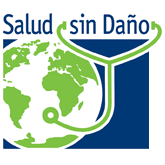Premature Infants Are Exposed to Unsafe Levels of Chemical in Medical Products Used to Save Their Lives

The very same medical equipment used to save premature infants’ lives may actually be harming their health, according to a recent study from Johns Hopkins Bloomberg School of Public Health. Known to have several adverse health effects, the chemical di(2-ethylhexyl)phthalate (DEHP) is added to PVC plastic devices such as breathing tubes, catheters, and IV equipment to make them more flexible.
There are substitutions without DEHP available for most medical products. Mary A. Fox, co-investigator on the study said, “We do have to make tradeoffs and we want to save these babies, but can we save them by using alternative products that reduce their exposures to substances that may be harming them? It seems like we could.”Study researchers concluded that "critically ill preterm infants may be exposed to DEHP at levels approximately 4,000 to 160,000 times higher than those believed to be safe. Infants can receive high exposures to DEHP during weeks to months of treatment in a hospital’s neonatal intensive care unit (NICU)."
Health Care Without Harm was one of the first organizations in the country to raise concerns about DEHP and its negative health consequences, petitioning the Food and Drug Administration in 1999 to require labeling on devices that contained DEHP. Although the labeling is still absent, the FDA issued a Public Health Notification about DEHP exposure. The Healthy Hospitals Initiative has also prioritized reduction of contact with chemicals like DEHP in its Safer Chemical Challenge.
To learn more about this issue and what Health Care Without Harm and Practice Greenhealth are doing to prevent unsafe DEHP exposure, please see our many fact sheets and other resources.
